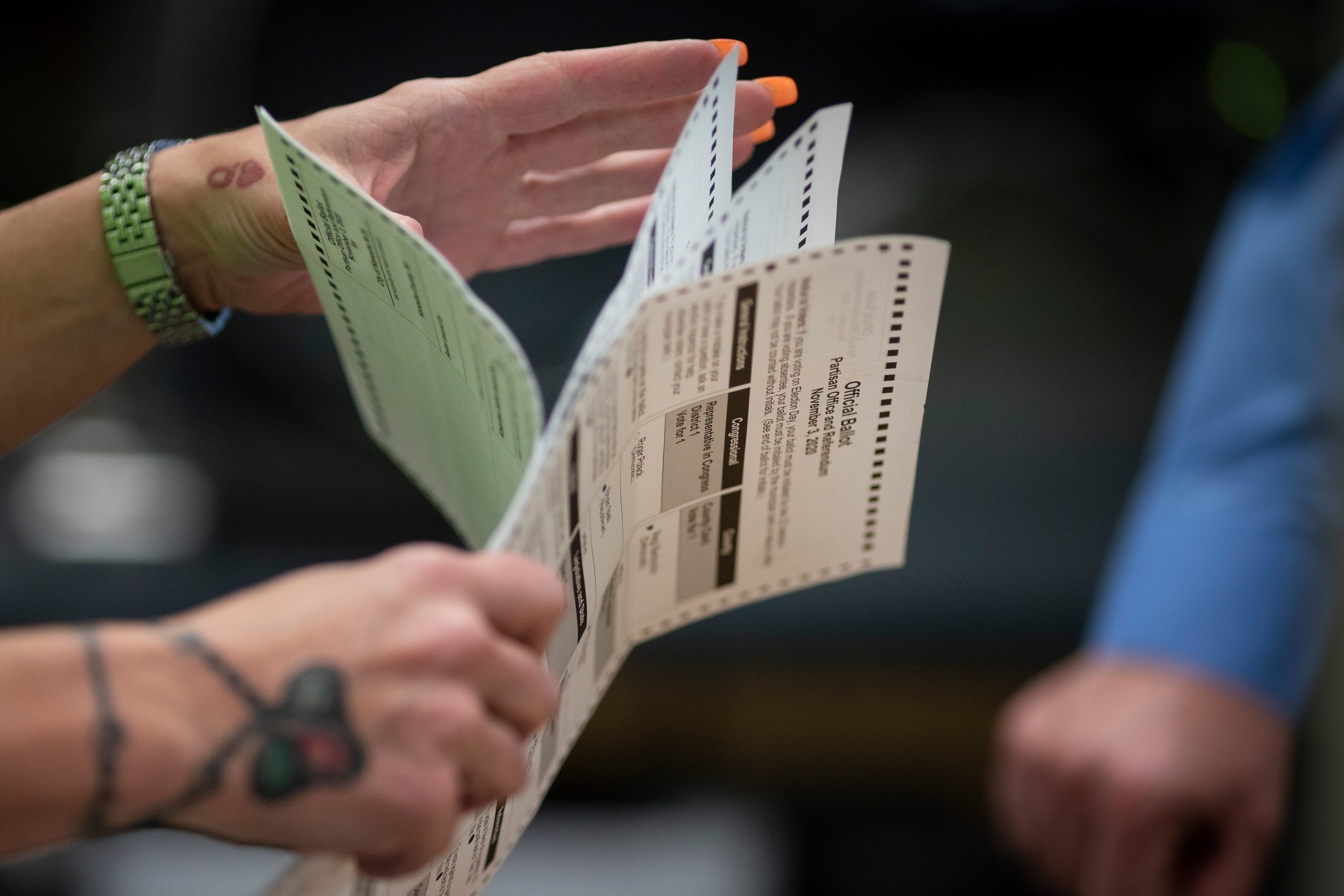Wisconsin judge refuses GOP request to pause absentee voting ruling sought by disabled people
A judge has refused to put on hold his ruling that allows disabled people in Wisconsin to be emailed absentee ballots at home in November’s presidential election in the closely watched battleground state

Your support helps us to tell the story
From reproductive rights to climate change to Big Tech, The Independent is on the ground when the story is developing. Whether it's investigating the financials of Elon Musk's pro-Trump PAC or producing our latest documentary, 'The A Word', which shines a light on the American women fighting for reproductive rights, we know how important it is to parse out the facts from the messaging.
At such a critical moment in US history, we need reporters on the ground. Your donation allows us to keep sending journalists to speak to both sides of the story.
The Independent is trusted by Americans across the entire political spectrum. And unlike many other quality news outlets, we choose not to lock Americans out of our reporting and analysis with paywalls. We believe quality journalism should be available to everyone, paid for by those who can afford it.
Your support makes all the difference.A judge refused Thursday to put on hold his ruling that allows disabled people in Wisconsin to be emailed absentee ballots at home in November’s presidential election in the closely watched battleground state.
Republicans asked the judge to not enforce his ruling while their appeal is pending. But Dane County Circuit Judge Everett Mitchell on Thursday rejected their arguments, saying putting his ruling on hold “would inflict significant harm on both the disability rights advocates and the public interest.”
It will now be up to the state appeals court to decide whether to pause the ruling that opens up a new way for an unknown number of disabled voters to cast their ballots in swing state Wisconsin before the Nov. 5 election.
Mitchell granted a temporary injunction on June 25 that allows clerks to email ballots to voters who self-certify that they can’t read or mark a paper ballot without help. The voters can then cast their ballots electronically at home using devices that help them read and write independently. The voters are still required to then print and mail the ballots back to the clerks or return them in person.
Other absentee voters can request ballots electronically, but they are then sent in the mail and not electronically. Voters then physically mark the paper ballots before returning them in person or via the mail.
Previously, state law allowed ballots to be transmitted electronically only to voters in the military or those overseas.
All absentee ballots have to be received by clerks before the polls close on Nov. 5 in order to be counted.
Neither side involved in the lawsuit had an estimate as to how many disabled voters may use the electronic ballot to vote.
Nearly 100,000 Wisconsin adults suffer from vision difficulties, according to statistics compiled by state health officials. A little more than 307,000 adults have difficulty moving, including difficulty walking, climbing stairs, reaching, lifting or carrying things.
Disability Rights Wisconsin, the League of Women Voters and four disabled voters brought the lawsuit in April. The Republican-controlled state Legislature intervened and filed the appeal and request for a stay while that is pending.
The Legislature's attorney, Misha Tseytlin, indicated during a court hearing Tuesday that he would ask the appeals court for a stay in the case. He did not return a message for comment Thursday.
The plaintiffs argued that many people with disabilities can’t cast paper ballots without assistance, compromising their right to cast a secret ballot.
Republicans argued on appeal that the judge wrongly disrupted the status quo too close to the election.
The Wisconsin Department of Justice, which represents the elections commission, also argued that the process was open to security risks and could cause confusion.
The elections commission has begun the “complex process” to comply with the court's order, its attorney, Karla Keckhaver, said in court Tuesday. That includes issuing guidance to more than 1,800 local clerks who administer elections and training them on the software needed to send the ballots, she said.
Questions over who can cast absentee ballots and how have become a political flashpoint in Wisconsin, where four of the past six presidential elections have been decided by less than a percentage point.